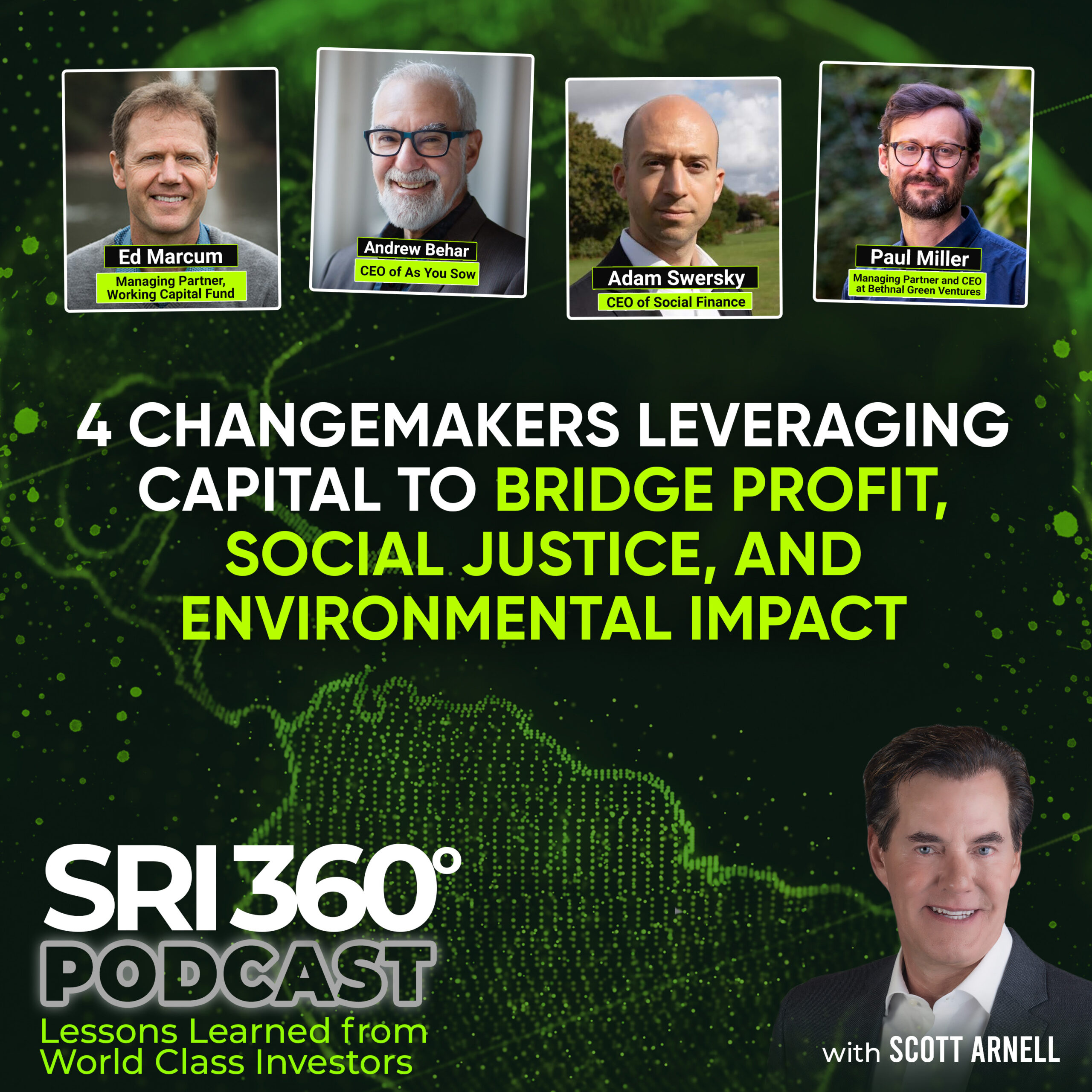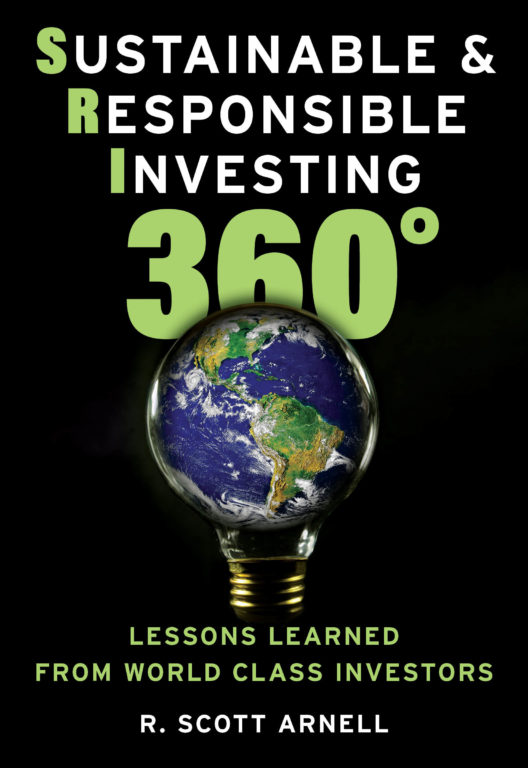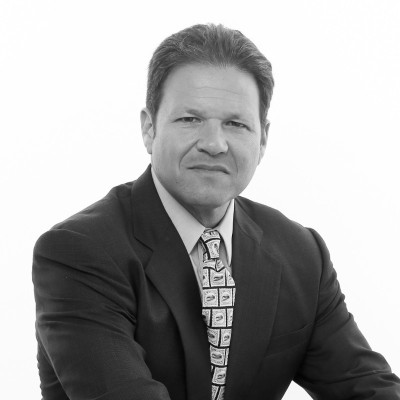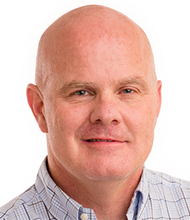
In this 4-in-1 compilation episode, I’ve brought together the compelling stories of four changemakers who are rethinking how we use capital to create measurable social and environmental impact. Each of these guests takes a unique approach to closing the gap between profit and purpose, showing how financial tools and innovative strategies are driving true systemic transformation.
Here are the featured guests:
Ed Marcum, Managing Partner, Working Capital Fund
Ed unpacks how his team is tackling systemic labor exploitation in global supply chains. By channeling investments into advanced tools like AI mapping and transparency technologies, he paints a picture of how these innovations are making accountability not just possible, but scalable – forcing companies to rethink their approach to labor conditions.
Full episode here: https://sri360.com/podcast/ed-marcum/
Andrew Behar, CEO of As You Sow
Andrew is a leader in shareholder advocacy. He emphasizes a collaborative approach – engaging with companies to reduce material risks in areas like climate change, diversity, and equity – rather than resorting to hostile tactics. This approach not only strengthens financial performance but also cuts systemic risks – creating wins for stakeholders at every level.
Full episode here: https://sri360.com/podcast/andrew-behar/
Adam Swersky, CEO of Social Finance
Adam breaks down how social impact bonds are redefining solutions for some of society’s toughest challenges. He shares how these unique financial tools bring together governments, investors, and social organizations to tackle pressing issues like homelessness and criminal justice reform. By tying financial returns to measurable outcomes, they ensure accountability and create a ripple effect of lasting impact.
Full episode here: https://sri360.com/podcast/adam-swersky/
Paul Miller, Managing Partner and CEO at Bethnal Green Ventures
Paul focuses on identifying founders who combine tech innovation with a mission to create real impact. He’s laser-focused on backing startups that merge sustainability with scalable business models. By investing in these early-stage companies, he’s helping to drive solutions that tackle global environmental and social challenges head-on while paving the way for high-growth opportunities that have the potential to reshape entire industries.
Full episode here: https://sri360.com/podcast/paul-miller/
Listen to the episode on Apple Podcasts, Spotify, Overcast, Podcast Addict, Pocket Casts, Castbox, YouTube Music, Amazon Music, or on your favorite podcast platform. You can watch the interview on YouTube here.
What was your favorite quote or lesson from this episode? Please let me know in the comments.
SHOW NOTES:
[00:00] Introduction
[03:35] Ed Marcum – Mission to combat labor exploitation
[14:53] AI and tech transforming supply chains
[19:50] Investment process and impact measuring
[34:01] Andrew Behar’s journey to shareholder advocacy
[47:16] Challenges and opportunities in shareholder advocacy
[58:23] From greenwashing to greenhushing: Corporate response trends
[01:03:13] Adam Swersky – the social impact bond model
[01:18:34] The success story of Peterborough prison
[01:28:24] Mental health and employment partnership initiatives
[01:33:33] Paul Miller – origins of Bethnal Green Ventures
[01:44:32] Definition of ‘Tech for Good’
[01:49:51] VC’s impact potential
[01:55:26] Diversity, growth tensions, and impact-washing
QUOTES FROM THE INTERVIEWS:
“We’re seeing a move towards recognizing that holistic responsibility for what takes place in your supply chain is going to be expected. ”
— Ed Marcum
“Right now, we are invested in our own destruction, and we don’t even know it. Globally, trillions of dollars are tied to the extractive economy. Until we pull our money out and redirect our capital toward creating the world we want to live in, we’ll never get there. ”
— Andrew Behar
“We’re involved in all the design work in the business cases and the evidence gathering, but we also stick with programs through implementation to make sure the outcomes are coming through in the end. ”
— Adam Swersky
“We’re trying to make it incredibly desirable that startups should have a positive and measurable impact as well. ”
— Paul Miller








